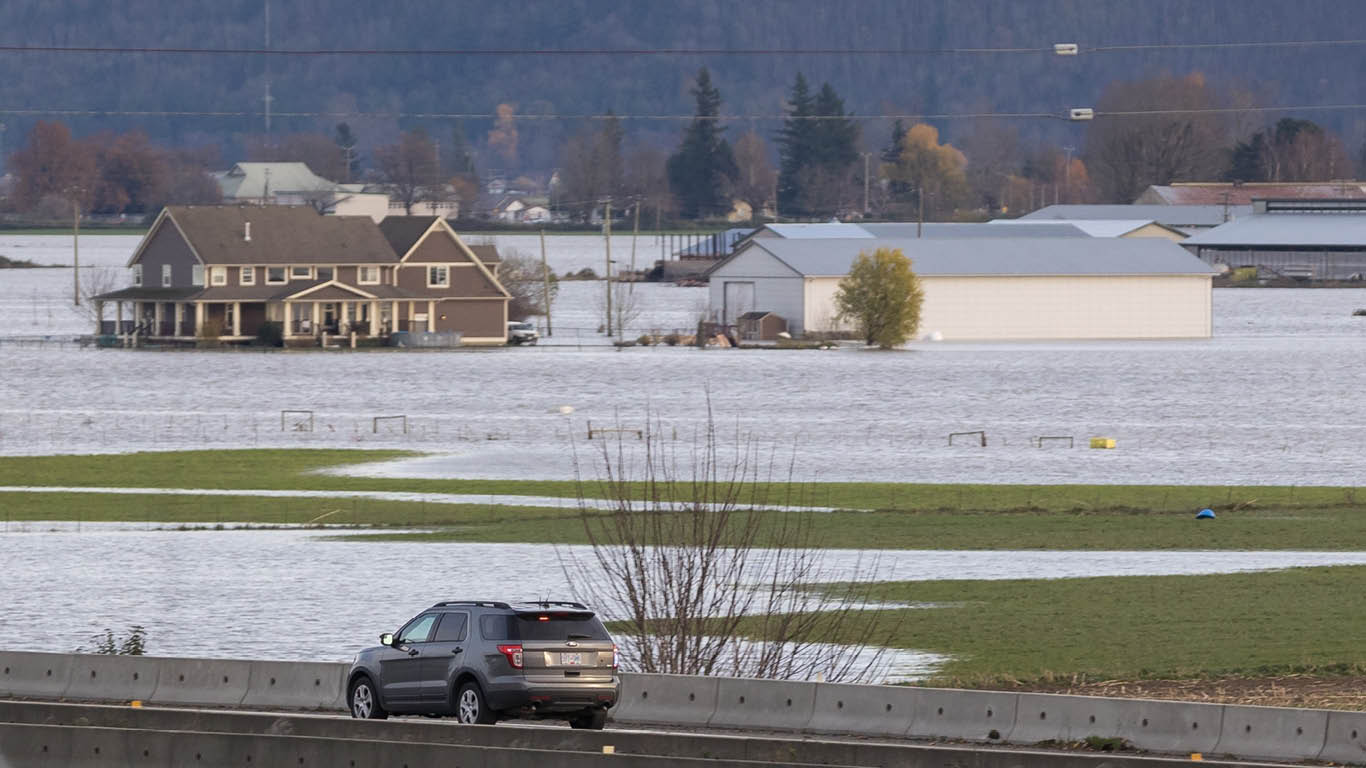
It’s Environment Week in Canada—a good time to focus on the effects of climate change, and especially vulnerable populations who may be affected by it more than others.
Certain high-risk populations in Canada have been, and could continue to be, adversely affected in cases of emergency or disasters. They include seniors, Indigenous peoples, low-income residents, persons with low literacy levels, transient populations, persons with disabilities, medically dependent people, children and youth, women, and new immigrants and cultural minorities.
Together, these vulnerable populations make up a considerable proportion of the overall Canadian population, underscoring the need to mitigate the effects of climate change. Let’s have a look at some of these effects, and some examples of their impacts on these populations.
Extreme heat, wildfires, air quality
Spring and summer are becoming hotter in Canada, which can mean not only difficult and dangerous heat waves, but also drier conditions that are ripe for wildfires—2023 was Canada’s worst wildfire season on record, causing weeks of haze and poor air quality.
A Statistics Canada report on the prevalence of air conditioning found that in 2017, more than 6 in 10 Canadians who were older than 65 years (62.6%) or belonged to a racialized group (61.8%) had air conditioning, roughly in line with the overall national rate (61.1%).
Those with diabetes (66.9%), obesity (64.8%), and high blood pressure (64.5%) had slightly higher rates of air conditioner ownership, but rates were lower for those with low-income status (54.5%), or those who lived alone (52.5%), or did not own their home (49.8%).
Other research found that more than 200 excess deaths were attributable to extreme heat events in Montréal and Toronto from 2000 to 2020. In many large Canadian cities, people aged 65 years and older experienced higher-than-average mortality risks during extreme events over this period.
More than 50% of residents in Montréal, Toronto and Vancouver had access to at least one cooling centre within a 15-minute walk from home.
As well, there was a 4.9% higher incidence of lung cancer and 10% higher incidence of brain tumours for people living within 50 kilometres of a wildfire in the past 10 years compared with the unexposed population.
Flooding
The effects of flooding can be felt far and wide. For example, the Abbotsford and Chilliwack floods of November 2021 affected 15% of the regional economy of British Columbia’s Fraser Valley. In 2022, Hurricane Fiona in the Atlantic region, and the derecho in Ontario and Quebec caused widespread flooding.
For Indigenous communities, flooding, in addition to wildfires and heat, can affect harvesting activities. In 2017, 65% of Inuit, 33% of First Nations living off reserve, and 35% of Métis hunted, fished, or trapped. Climate change has influenced fish availability, numbers of caribou and moose, hunting periods, and weather conditions for travel and safe access to harvesting areas.
Weather-related emergencies
In addition to flooding and wildfires, a changing climate has been shown to cause more extreme weather events such as powerful storms and hurricanes.
These weather events can also pose a financial burden for many Canadians. In the fall of 2022, people who said their household would be unable to cover an unexpected $500 expense were more likely to be concerned about the risk of weather-related emergencies or natural disasters, and less likely to have taken steps to prepare.
To learn more
Visit the Climate change statistics portal for the latest data, tools and reports providing Canadians with relevant information on climate change.

StatsCAN app
Did you know you can read StatsCAN Plus articles and more on the StatsCAN app? If you’re already using the app, let us know what you think by leaving a review in the App Store and Google Play.
Contact information
For more information, contact the Statistical Information Service (toll-free 1-800-263-1136; 514-283-8300; infostats@statcan.gc.ca) or Media Relations (statcan.mediahotline-ligneinfomedias.statcan@statcan.gc.ca).

